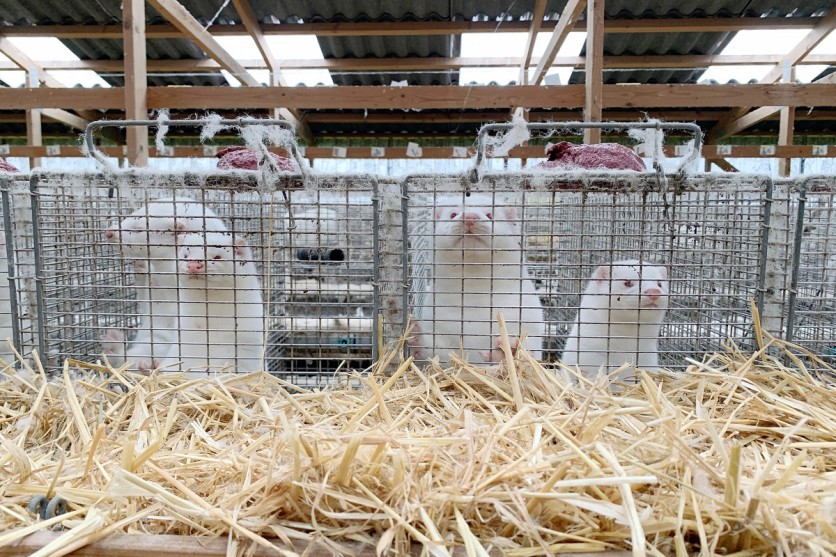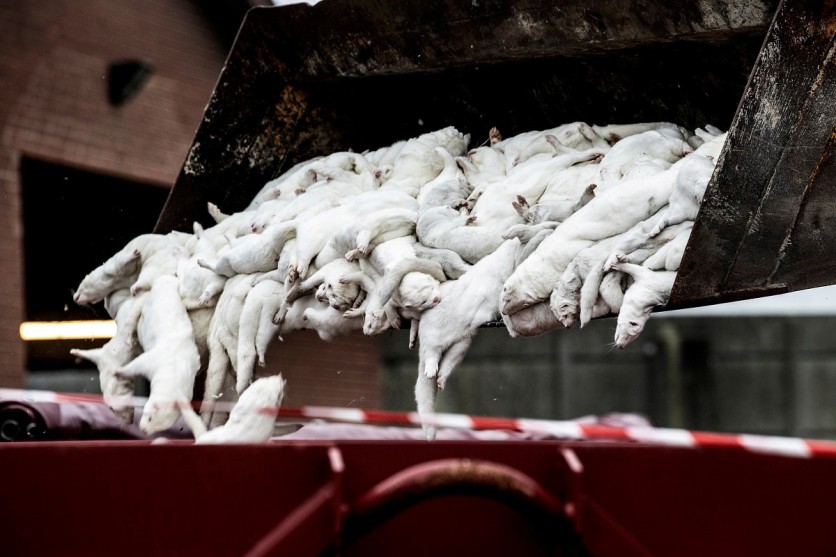Denmark, world's largest supplier of mink fur, is set to cull all its mink population after a mutated coronavirus strain is discovered, which has weak reaction to antibodies and can spread from mink to humans.
On November 4, the Danish government announced its plans to kill as many as 17 million animals in an effort to stop the spread of the mutated virus.

Danish Prime Minister Mette Frederiksen said in a news conference that while they have the largest mink fur industry, the government has great responsibility over its citizens, and with the newly-found mutation, "we have an even greater responsibility for the rest of the world as well," according to a BBC report.
Frederiksen also said that Danish officials have noticed that the mutated coronavirus shows a meager reaction to antibodies, which could reduce the efficacy of the future vaccine. They have already notified the European Centre for Disease Prevention and Control and the World Health Organization (WHO) regarding their new findings.

Coronavirus mutation: Is it more dangerous?
It is important to note that all viruses mutate while it does not automatically mean they have become deadlier, according to a WHO statement to NPR. The WHO also said that it works with researchers, sequencing team, synthetic biologists, and evolutionary virologists to analyze these viral changes.
The WHO has already recorded 12 people diagnosed with new virus strain while 200 confirmed coronavirus cases can be traced to mink exposures.
In October, Tech Times reported that 10,000 thousands minks have died in Utah after a coronavirus outbreak in mink farms. However, state veterinarian Dr. Dean Taylor stated that humans were not at risk of getting infected from minks.
Why are minks at risk of coronavirus?
The mink coronavirus outbreaks in the Netherlands started back in April. However, Wageningen University and Research professor Wim van der Poel said the virus strain discovered in the minks was similar to those affecting humans.

Most deaths are older minks aged about one to four while younger minks seem to less susceptible to coronavirus. Infected minks experience difficulty in breathing, but the illness progresses quickly and killed them the following day.
Meanwhile, researchers from the University College London (UCL) found that 26 types of animals are likely to acquire coronavirus. Aside from minks, animals include pigs, sheep, and horses. The study found that minks carry a unique protein in their lungs, which makes them highly at risk to COVID-19.
Not enough information about the coronavirus mutation
Meanwhile, University of Basel postdoctoral researcher and virologist Emma Hodcroft tweeted on November 5 explaining the viral mutation Denmark has mentioned, although they "know almost nothing about the variants/mutations in question."
Recently reported #SARSCoV2 #COVID19 '#mink mutation' in #Denmark is getting a lot of attention right now, but officially we know almost nothing about the variants/mutations in question.
From an SSI report from Sept, here is a little info.https://t.co/wNJ1mphOl0
1/21 — Dr Emma Hodcroft (@firefoxx66) November 4, 2020
She also urged the public not to panic as there is insufficient information on how dangerous the coronavirus mutation is since Denmark has not yet released any specific details about the coronavirus variation.
While we may find the same mutation in humans who've been infected from a variant circulating or originating in mink, it might not have any impact. Indeed, it could be maladaptive (not work as well in humans if it's adapted to mink). We do not know either way yet. 17/21 — Dr Emma Hodcroft (@firefoxx66) November 4, 2020
Hodcroft also tweeted that if Denmark believes the mutation is "serious enough to kill their entire mink population," they should have thought of sharing details about the mutation to the scientists across the globe as soon as possible, so they could also check if these mutated variants are also found elsewhere.
Related article: At Least 12,000 Minks in Utah, Wisconsin Die After Contracting COVID-19 from Humans
This is owned by Tech Times
Written by CJ Robles
ⓒ 2026 TECHTIMES.com All rights reserved. Do not reproduce without permission.




